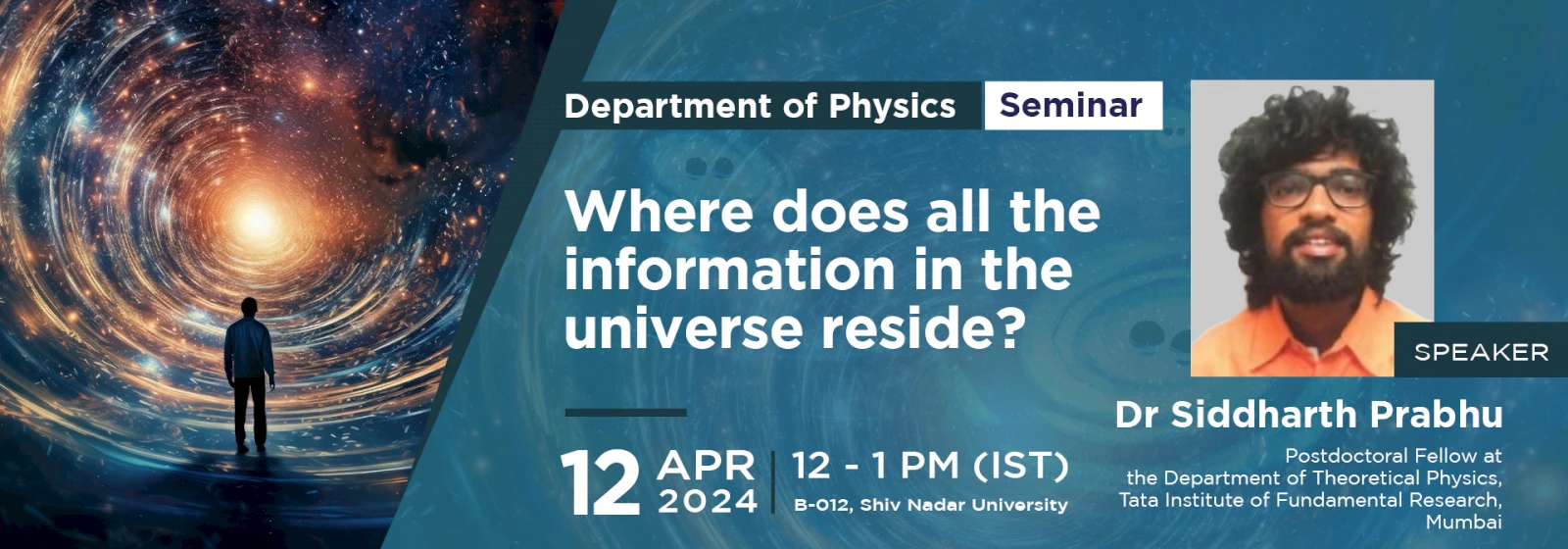Department of Physics | Colloquium | Where does all the information in the universe reside?
A central goal in our quest to understand nature is the ability to predict observables, i.e., the outcomes of experiments. In order to make such predictions, we need to gain complete knowledge of the present state of the system of interest, and then employ the physical laws governing the evolution of the system. Let us consider the whole universe as our system. If we wish to predict the future of the universe and retrodict its past, we might expect that we need to make observations everywhere in the universe. However, recently, we have come to suspect a radical departure from this expectation. In this talk, I will provide an accessible introduction to the idea that all the information in the universe could be available to observers who are only on its boundary. I will describe our progress in understanding how this information is encoded on the boundary. I will also discuss the implications of the boundary description for understanding bulk gravitational processes, and for resolving longstanding questions about the nature of black holes. Along the way, we will uncover a promising new approach to computing observables for non-gravitational processes too, such as those regularly probed in various laboratories including colliders.

Share this: